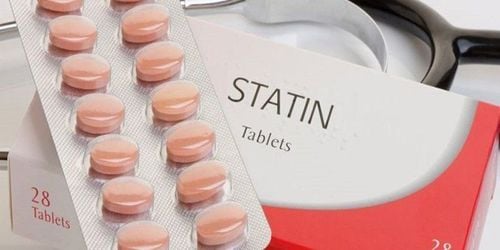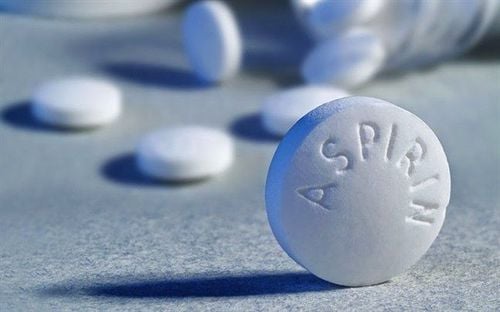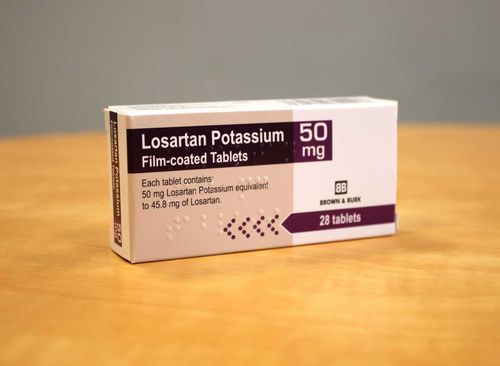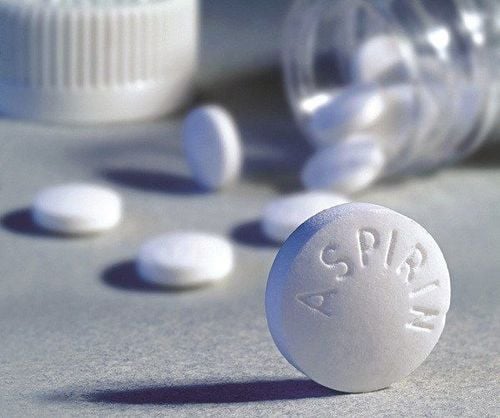This is an automatically translated article.
Angiotensin-converting enzyme inhibitors are a group of drugs commonly used in the treatment of hypertension, congestive heart failure or prevention of myocardial infarction. Accordingly, Ramipril is an active ingredient of this group present in the composition of the drug Altace. So what does Altace do?
1. What does Altace do?
Altace has the main active ingredient Ramipril, this active ingredient belongs to the group of ACE inhibitors. The most common indication of Altace is to treat patients with high blood pressure. Optimally controlled blood pressure can prevent the risk of stroke or heart attack. Besides, the active ingredient Ramipril in Altace is also used in the treatment of congestive heart failure.
2. Some warnings about the use of Altace
Pregnant women absolutely must not use Altace. If you are being treated with this product and become pregnant, please stop taking Altace and promptly inform your treating doctor. Altace can cause harm to an unborn baby, and even death, if taken during the second and third trimesters of pregnancy. People with a history of angioedema should also not use Altace. For patients with diabetes, the use of Altace with any product containing aliskiren (a drug used to treat high blood pressure) is not allowed. Situations should not use Altace if the history of allergy to Ramipril or the following problems:
Recently used a heart medicine containing Sacubitril; A history of serious allergic reaction to any active ACE inhibitor such as Benazepril, Captopril, Enalapril, Lisinopril, Moexipril, Perindopril, Quinapril or Trandolapril; Patients should absolutely not use Altace within 36 hours before or after using a product containing Sacubitril (such as Entresto).
Patients should also limit the simultaneous use of drugs containing Ramipril (such as Altace) with Aliskiren if they have kidney disease.
To ensure the safe use of Altace, patients should talk to their doctor about the following problems:
Decreased kidney function or undergoing hemodialysis; Disturbances in the balance of electrolytes, especially increased potassium levels in the blood; Liver disease; Connective tissue disease such as Marfan syndrome, Sjogren's syndrome, systemic lupus erythematosus, scleroderma or rheumatoid arthritis; Are on a salt-restricted diet; Are taking the active ingredient Telmisartan (such as Micardis). Patients who are breastfeeding should also not use Altace while breastfeeding. At the same time, the drug Altace is not recommended for use in anyone under 18 years of age.
3. Instructions for using the drug Altace
Patients should use the drug Altace exactly as prescribed by the doctor, besides complying with all accompanying drug instructions. The treating doctor may sometimes change the dose of Altace on a case-by-case basis. When taking the drug, the patient should swallow the Altace tablet whole, do not chew or crush it.
You may need regular blood pressure checks and even periodic blood tests during treatment with Altace .
Patients need to contact a doctor for treatment if they have vomiting, persistent diarrhea or sweat more than usual... The above situations are easy to cause the body to lose water when taking Altace, which leads to risk of severe hypotension, electrolyte disturbances or acute renal failure.
Cases being treated for high blood pressure with Altace drug still have to continue taking the drug even if they feel stable. Hypertension usually does not cause any symptoms, and it requires medication to control blood pressure for the rest of life.
4. Information about the dosage of Altace
Recommended dose for adults with diabetic nephropathy:
Initial dose: 2.5 mg orally once a day without diuretics; Maintenance dose: 2.5 to 20 mg/day, divided into 1 to 2 oral doses. Recommended dose for the treatment of hypertension in adults:
Initial dose: 2.5 mg orally once daily if diuretics are not used; Maintenance dose: 2.5 to 20 mg/day orally in 1 to 2 divided doses. Recommended dose for adults with congestive heart failure:
Initial dose: 2.5 mg orally 2 times a day; Maintenance dose: 5mg orally 2 times a day. Recommended dose for adult left ventricular dysfunction:
Initial dose: 2.5 mg orally once daily; Maintenance dose: 5mg orally twice daily. Dosage for treatment of myocardial infarction:
Initial dose: 2.5 mg 2 times/day; Maintenance dose: 5mg 2 times a day. Missed dose of Altace and what to do:
Patients should take Altace as soon as possible, but skip the missed dose if it is almost time for the next dose. Never take 2 doses of Altace at the same time. Altace Overdose and Treatment: Patients with an overdose of Ramipril need urgent medical attention.
Some things to avoid when using Altace:
Limit changing positions too quickly, especially getting up from a sitting or lying position due to the risk of dizziness; Do not use potassium supplements or salt substitutes, unless directed to do so by your doctor.
5. Side effects of the drug Altace
Patients should get emergency medical help if they have symptoms of an allergic reaction to Altace, such as rash, hives, severe stomach pain, difficulty breathing, swelling of the face, lips, or tongue. or throat. The risk of an allergic reaction to Ramipril is higher for African Americans.
Contact the treating doctor immediately if the patient has the following symptoms:
Feeling about to pass out; Jaundice , yellow eyes ; Urinating little or no urine; High fever, chills, sore throat; Manifestations of severe hyperkalemia such as nausea, weakness, tingling sensations, chest pain, irregular heartbeat, and loss of mobility. Common side effects of Altace may include:
Headache; Dry cough ; Dizziness, weakness, feeling tired.
6. Drug interactions of the drug Altace
People who have a prescription for Altace need to talk to their treating doctor about a list of all medicines they are taking because there are many different drugs that can interact with Altace, especially:
Diuretics or any other antihypertensive drugs; Lithium; Solution for injection Myocrisin in the treatment of arthritis; Insulin or oral diabetes medication; The group of NSAIDs (non-steroidal anti-inflammatory drugs) such as Aspirin, Ibuprofen, Naproxen, Celecoxib, Diclofenac, Indomethacin, Meloxicam and others. The above list is not exhaustive and there are many other drugs that may interact with Altace, products that may include prescription and nonprescription drugs, vitamins, and herbal products.
Please dial HOTLINE for more information or register for an appointment HERE. Download MyVinmec app to make appointments faster and to manage your bookings easily.













